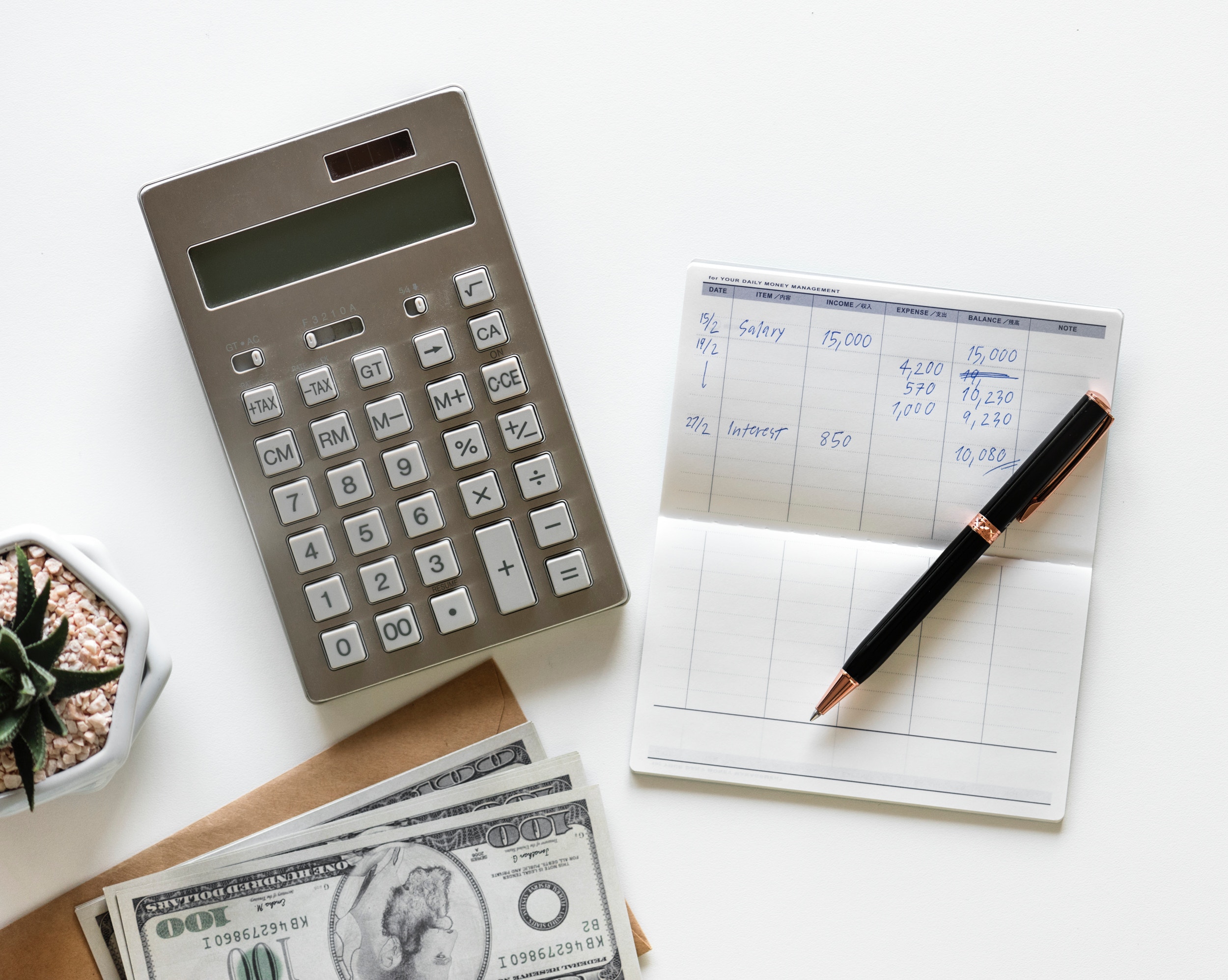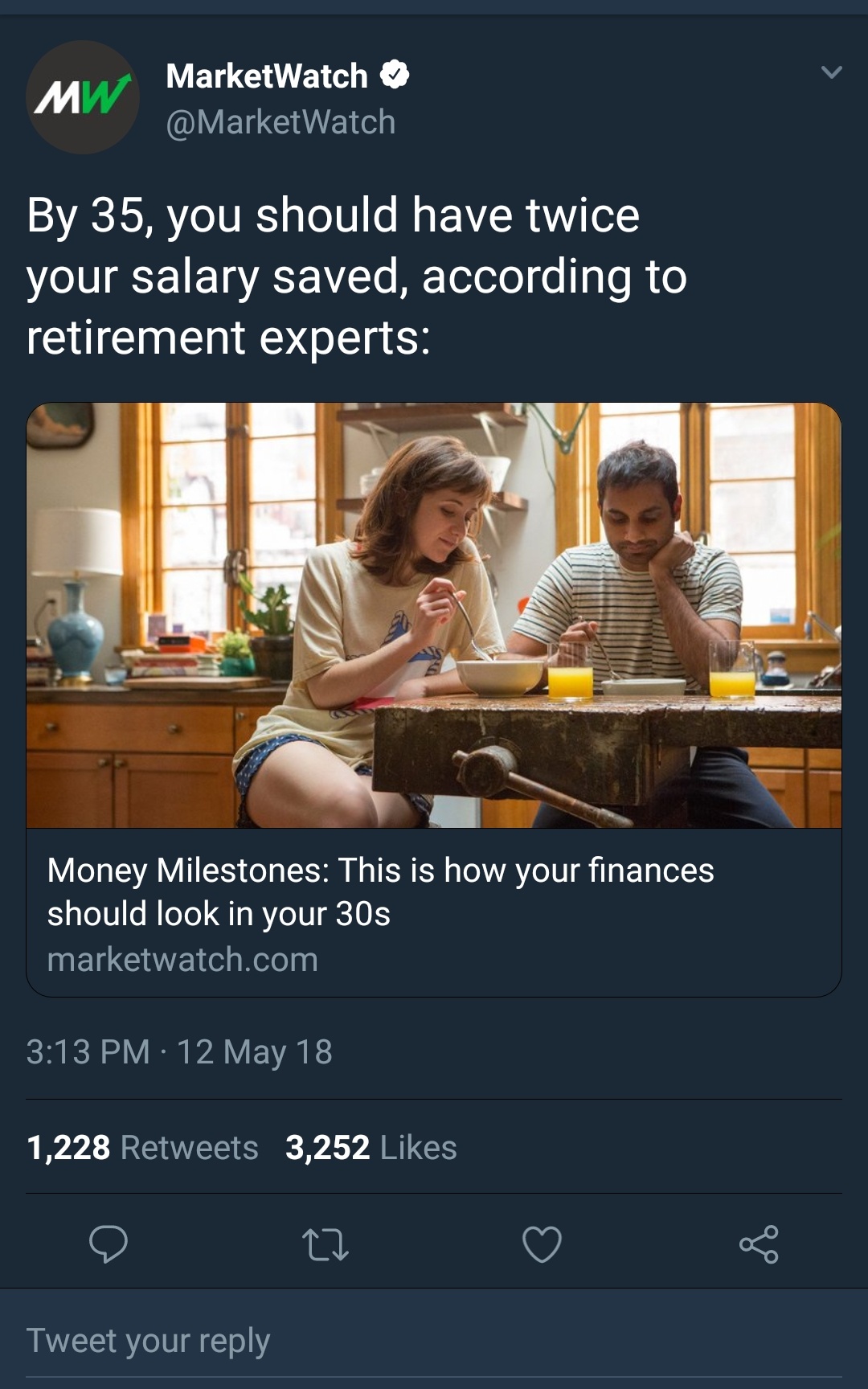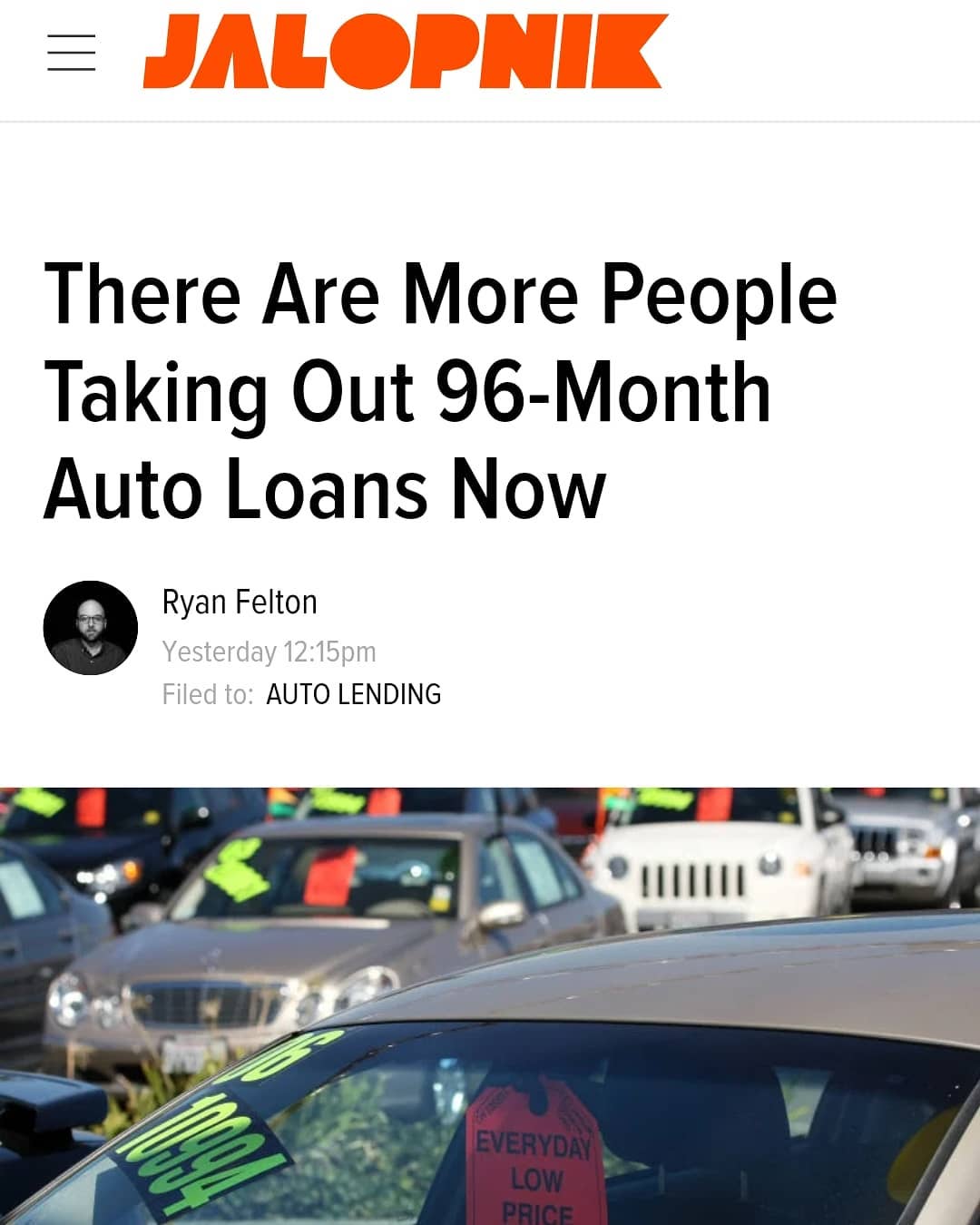Last year when I bought Amanda’s engagement ring they put it on a 0% interest loan even though I was never asked if I wanted the 0% interest deal or if I wanted to pay in full. Even though I wasn’t asked if I wanted the deal, I would have taken it for several reasons: I had enough money in my account to pay for the ring in full, my bank account earns more than 0% so I could keep my money in there during the meantime and earn a little bit instead of earning nothing on Amanda’s finger, and I’m disciplined enough to pay it off in time. The problem with this situation is that as I was speaking about it with someone last week I realized how shady the situation really was.
Debt
A Little Late
3 minute read
Income
No matter whether you’re not happy with your income, your savings, or the amount of debt that you have, there’s always something that you can do about it. Yes, you can earn more income, no matter what position you’re in.
There are so many ways to do so but most people just either never take the time to put in the effort or just don’t think that the possible solutions will work so they ignore them: find a side hustle or part-time job, list an extra room on Airbnb, list your whole house on Airbnb while you’re on vacation, Uber/Lyft, monetize a blog website (mine isn’t monetized at this point), sell things that you don’t use, do a job on a website like Fiverr, talk to your boss about getting a raise, learn a skill that makes you more valuable at work so that you will get a raise and/or bonus
There are tons of ways to increase your income that I haven’t even listed here but most people would rather not put in the work that it takes. Yeah, you might look at most (or maybe even all) of these things and think that you’d never do that, but you can’t say that there aren’t ways for you to make additional income if you wanted to.
Savings
Increasing your income will allow you to increase your savings, but that means that you’ll have to keep your spending in check. The biggest ways to take control of your cash flow and save more to reach a financial situation that you love are to control your spending on The Big 3: housing, transportation, and food. Too many young families allow society to pressure them into purchasing a house and/or car that they can’t afford so that they can impress their friends and show off how successful they are, which can lead to not having much, if any, leftover to save after paying bills.
This is the wrong way to go about it. You should establish your personal savings rate first, and THEN figure out how much you can afford to spend on a home or car without affecting how much you want to make sure that you can save. The size or price of a house doesn’t make it any more of a “home” and a cheaper, used vehicle does the same exact thing as a new one (just maybe in less style). Eating out is typically much more expensive than buying groceries and cooking at home and the costs can add up quickly. Compare the cost of a meal at a decent restaurant to your weekly grocery bill and you may be surprised how far you can make your money go.
Something that too many people do is allow subscription services that they don’t use, or could very easily live without, continue without receiving value from them. Paying for a subscriptions each month that you don’t value is only taking money out of your pocket and putting it in someone else’s. There are so many things that we sign up for on an automatic monthly subscription model that it can be worth it to review what you’re paying for quarterly and see what you feel comfortable cutting.
Spending money on experiences rather than things has been proven to provide more happiness. Maybe it’s time to reconsider where your money goes and if that actually makes you happy.
Debt
Some people don’t worry about how much debt they have. Some people hate to have any debt at all. Some people have no idea how much debt they have and they’re scared to know so they ignore it – this is scary.
If you’re one of those who isn’t in love with the amount of debt that you have, then increasing your income and finding ways to cut expenses without significantly decreasing your happiness can help you to have more cash to pay down the balances. Some people will go to great lengths to get rid of the debt that they have. Sometimes this is a good idea and sometimes it may actually not be optimal for their long-term finances.
If you’re not in love with your current financial situation, then it doesn’t mean that you have to move mountains to get to a place that you’re happy with. Making small positive financial decisions consistently and building on them can lead to a ton of progress in a relatively short amount of time. Where you are right now doesn’t have to be where you are forever. You just have to begin making intentional changes and realize that no one else is going to do it for you.
What Are You Going To Do With Your Bonus And/Or Tax Refund?
3 minute read
Invest
Look, I’m a financial planner. My immediate thought is to pay yourself first and increase your savings and/or investments. If you’re not saving and investing a significant portion of your income already, then this can be a great way to get started. By now we all know how important investing for our future is, but most young professionals don’t take it as seriously as they should. Any extra money that you get from a bonus or tax refund could be a great opportunity to do something that your future self will thank you for.
Pay Down Debt
On the other hand, if you have high interest rate debt, then applying your extra cash to pay that down may be more beneficial. Using your money optimally is just a math game that depends on the interest rate on your debt and your expected rate of return of your investments. However, not everyone is motivated by getting the best rate of return possible for their money.
Some people really hate debt and would rather pay it down as quickly as possible, no matter whether it’s the most mathematically optimal decision or not. That’s a fine option as well, but we need to make sure that it makes sense within our overall financial plan.
Spend
I’m not telling you that you shouldn’t spend any of your tax refund or bonus. Everyone needs to be able to spend on things and experiences that they want and that make them happy, but you shouldn’t let doing so get in the way of reaching your financial goals.
This is why it’s so important to have your goals for what you want your money to accomplish for you explicitly stated. Otherwise, you’re likely to waste a lot of money (and a lot of progress towards your true goals) by spending on things that don’t really make you happy or provide you with much value because you’re trying to keep up with the Joneses.
Save For A Short-Term Goal
If you don’t have high interest rate debt and you save an adequate amount, then why not get started on saving for your summer vacation or plan a trip if you don’t have one already planned? I’m always going to value spending on travel and other experiences much more highly than spending on “stuff”, but if stuff is what makes you happy, and you’re in a good spot, then go ahead and buy that thing that you’ve really been wanting – within reason of course.
My Goal
My goal is to save/invest 50% of my bonus and tax refund, at least. Not only will this help me get a jump start on my annual savings goals, but it will also help to reduce lifestyle creep which can become a problem if spending increases over time without savings increasing as well.
The beginning of the year has seemed even busier for Amanda and me than the end of 2018 did, which has led to a little bit more spending than I would have liked. However, most of that spending has been on experiences that I’ve enjoyed, rather than things that I’d probably not care about in a couple of months, so I can’t be too upset. We still have a couple more weekends left that are booked, but I’m confident that I’ll be able to save at least half of my bonus and tax refund not only for long-term investing, but also for short-term goals such as our wedding and travel.
Should I Pay Down Debt or Invest The Money?
4 minute read
Sometimes, the decision of whether to pay off debt more aggressively or to invest more is an emotional decision rather than a mathematical one. Some people really hate having debt and it keeps them up at night thinking about owing someone else money. If debt bothers you this badly, and you’re in a position to do so, then paying off debt more quickly than required may not be a bad option.
However, there’s a more mathematically optimal way to approach the situation. But it doesn’t really matter if you take the mathematically optimal approach if you can’t feel comfortable with it. If you’re fortunate enough to be in a position to make either choice and remain financially secure, then you have to feel comfortable and secure with your decision. Otherwise, you’ll just keep thinking about it.
Time Value of Money
The concept of the time value of money must be taken into consideration to understand the mathematically optimal decision. It’s better to have (or invest) a dollar today than it is to receive (or invest) a dollar at some point in the future due to the potential that the money has to earn a compounding rate of return.
While money that you invest is expected to compound (earn returns on previous returns or earn interest on previous interest), debt amortizes which means that the balance decreases with each payment. Under an amortization schedule, outstanding interest is paid first and outstanding principal is paid with what’s left of the payment. Interest is calculated on the most recent balance of the loan which means that the amount you’re paying in interest decreases with each payment.
Let’s take a look at an example where you have two options:
Option 1
Increase Your Net Worth By 7,307% In One Year? It Can Happen.
< 1 minute read
There wasn’t some miracle that had to happen to do this and she didn’t win the lottery. She didn’t buy some product that promises to take care of all of your financial woes and she didn’t start selling products from an MLM that promise to make you rich beyond your wildest dreams.
It’s simply a result of staying disciplined and executing a plan. There’s probably been much less discretionary spending on clothes, going out with friends, eating out, and hair appointments than she would like, but it has clearly paid off. She’s had to keep her long-term goals in mind to make sure that those old day-to-day spending habits wouldn’t derail her progress.
She used a simple formula that can work for anyone:
Live Below Your Means + Save + Invest + Focus on Paying Down Debt = Financial Success
She did start at a negative net worth last year (not anymore), and it’s likely that her net worth will go down over the coming years since she’s going back to college to finish her degree, but she’s buckled down and done what she can over the past year to put herself in a much better position to do so without completely wrecking her financial situation.
I’m proud of her for that.
The Potential Hidden Cost of Student Loan Forgiveness
2 minute read
PSLF is available to those who work in government or not-for-profit and make 120 consecutive qualifying monthly payments towards their student loans. There are a lot of details around this, but those are for another day. Check the PSLF link above if you’re interested in learning more. To be eligible, an individual must complete the PSLF Employment Certification Form for each year that they worked for an eligible employer and made eligible payments. If all of the requirement are satisfied, then any remaining federal student loan balances will be forgiven.
Income-driven repayment plans tie your student loan payments to your income. If you fulfill all of the requirements, including recertifying annually, then any remaining federal student loan amount at the end of 20-25 years (depending on payment plan) will be discharged.
Keep in mind that these programs are for Federal student loans. You’ll likely end up being responsible for paying all of your private student loans yourself, even if you work for the government or a nonprofit.
Currently, any loans that are forgiven under PSLF are not treated as taxable income. However, loans discharged under the income-driven repayment plan options after 20-25 years of payment are treated as taxable income in the year that they’re forgiven. This is something to be aware of since laws always change and there has been some discussion about this topic recently.
For example, if someone had $100,000 of student loans forgiven under PSLF, then they would not have to pay any taxes on that amount. However, if someone were in the 24% tax bracket and had $100,000 of student loans discharged under a repayment plan, then they could have an extra $24,000 of taxes to pay in that year.
Before using these programs, you should run the numbers to see if it’s worth utilizing them. You could actually end up paying more in payments and taxes than if you were to just pay the loans off more quickly.
If You Received a Large Sum of Cash Today, What Would You Do with It?
3 minute read
Without putting any real thought into the question, we could say that we’d buy something for ourselves such as a new phone, a new car, or a new house, depending on the amount of money. However, if we think more deeply into the question, there are choices that would have to be made in this situation.
The first thing that I’d do is to lay out my options. Some of those choices might be:
- Prepare for emergencies
- Save it
- Pay off debt
- Invest it
- Help someone else
- Spend it
Prepare for Emergencies
You could spend the money on something that you’ve been wanting for a while, but the first two things that I’d evaluate would be if I had a proper emergency fund established and if I had the proper insurance coverages in place. These are the framework of a solid financial foundation. If the answer to either of these questions was no, then the decision-making process would end here. The answer would be obvious. Granted, there could be some money left over to do something with after proper insurance coverages are put in place.
Save It
If you have an adequate emergency fund and are properly insured, then the next thing you might think to do with the money is simply to save it. If you know that you have a large upcoming expense that the money could help you pay for, or some other short-term goal, then parking it in your savings account would probably be a good option.
Pay Off Debt
If you can’t identify any expenses that will need to be covered in the near-term, then perhaps you have debt that you’ve been itching to pay down. Sometimes, it’s not the mathematically optimal option to pay down debt, but that’s a different discussion. Paying off high interest rate debt may be a good option for the money because you are sort of “guaranteeing” yourself a return. Additionally, if you have enough money to pay off the debt completely, then you will free up cash flow from the payment you were making on the loan that you can then utilize to put towards paying off more debt or saving.
Invest It
If you’ve walked through the steps above and haven’t identified any needs for the money, then investing it may be your best option. Investing the money for retirement may get you a little closer to your goal. On the other hand, maybe you would like to invest it in a 529 Savings Plan for your child’s college education. No, buying a new car isn’t an investment.
Help Someone Else
If you don’t need the money at all and you feel that the money could better serve someone else, then you could give the money away to a family in need or a worthy cause that you support. Not only would this be a good use of the money, but it would probably also make you feel good for helping others.
Spend It
Finally, if you’ve gone through all of the options above and haven’t identified any that you feel are right for your money, then go ahead and spend it! If you’ve mad it to this step, through an honest evaluation, then you’ve likely put yourself in a pretty good financial position and you deserve to treat yourself.
Obviously, this doesn’t have to be an all or nothing approach. You could have saved some of the money to spend on yourself rather than utilizing it all on one of the options above. However, I think it’s a good idea to try and identify where the money could be put to work in the opportunities above first. Remember, spending on experiences provides more happiness than spending on stuff.
What’s the Best Way to Pay Off Debt?
3 minute read
The answer is complicated and based on your own personal situation and comprehensive, long-term financial plan.
Mathematically Optimal – Highest Interest Rate
Mathematically, the most optimal option would be to pay down the highest interest rate debt first, which is the option that I opted for. For example, if you have a student loan with a 6% interest rate and you decide to make extra payments towards the principal to pay it down faster you are “guaranteeing” a return of 6%. The reason we can look at it as a “guaranteed” return is that you’re going to have to pay the debt off (unless you declare bankruptcy) no matter what. By paying down the principal balance of the debt more quickly you are ensuring that you won’t have to pay as much of that 6% interest rate over the life of the loan.
However, this wouldn’t be the most mathematically optimal option if you believed that you could take those extra payments that are going towards your debt and invest them in the market at a higher rate of return than the interest rate on your debt. Obviously, you would be trading a sure thing (the interest rate of the debt) for an unsure thing (the return of your money in the market) in this case. Depending on interest rates and expected rates of return, this may be an option for some people who have a higher risk tolerance and are able to take a long-term view of the markets and their financial situation.
Emotionally Optimal – Lowest Balance (Debt Snowball)
Sometimes, the emotionally optimal answer is paying off your lowest debt balances first utilizing a Debt Snowball approach, a term made famous by Dave Ramsey. Remember that under both the mathematically optimal and the emotionally optimal approach you are continuing to make minimum payments on all of your obligations.
Utilizing a Debt Snowball method may be better for some people because it allows them to recognize small wins along the way and continue to build motivation to better their situation. While continuing to make minimum payments on all of your debts, you would apply any extra money to the smallest balance loan until it’s paid off. Once the smallest loan is paid off, you would then apply the payment that you were making towards that loan to your next smallest loan balance.
As you continue to pay off debts, you continue to “snowball” your payments into the next largest debt. You may have only been able to pay $50 per month towards the first loan that you were paying off, but by the time you have paid off loans 1 and 2 and are focusing on paying off loan number 3 you may now have $150 extra per month to apply towards it.
The way that you tackle your debt is a largely personal decision. The best option is the one that will be sustainable for you in the long run and which provides you with the greatest peace of mind.
Apparently young people don’t want to hear about saving for retirement
3 minute read
No Title
No Description
A 96-Month Car Loan?!
< 1 minute read
I was baffled when my colleague, Aaron Williams, shared this article with me that he saw on Facebook. A 96-month car loan? That’s 8 years. Think about what you were doing 8 years ago.
Not only would a 96-month auto loan likely be on a brand new car (that’s a whole different discussion), but you’re leveraging a depreciating asset for a long time.
According to an article written in July 2017 by Nicole Arat for NerdWallet, “Your car’s value decreases by around 20% to 30% by the end of the first year. From years two to six, depreciation ranges from 15% to 18% per year, according to recent data from Black Book, which tracks used car pricing. As a rule of thumb, in five years, cars lose 60% or more of their initial value.”
Also, check out this Car Depreciation Calculator that shows how much a vehicle can depreciate in 1 minute as well as the estimated depreciation up to 5 years.
If you bought a $25,000 vehicle utilizing a 96-month loan at a 5% interest rate you would still owe $10,560 on the loan at the end of year 5 while the vehicle would be worth $10,000, using Arat’s rule of thumb mentioned above. The Omni Calculator Car Depreciation Calculator provides the same residual value.
It doesn’t make much sense to me to pay $18,990 over 5 years (the amount you’d pay in principal and interest using the info above) to own something that has NEGATIVE equity. AND STILL HAVE 3 YEARS LEFT OF PAYMENTS.
That’s my rant for the day. Thanks, Aaron.










